
When I'm between writing games, I spend a lot of time playing them.
(Huge thanks to everyone for an awesome result for our Avernum 4: Greed and Glory Kickstarter. If you missed it, you can still back it.)
Part of the reason I play the hot new games is, of course, to find ideas to steal. Another part is to try to reawaken my interest in video games. After the exhaustion of shipping a game, I have a period of deep uncaring about the medium. I need to play a few really fun games to get interested again.
Lucky for me that UFO50 just came out. It's a truly remarkable indie title. We haven't seen its like before, and I'm not sure if we ever will again.
It came out, got a bit of attention, seemed to sell OK, and got washed from the public consciousness by the 100 new games that appear on Steam every day. So let's take a look. It offers a lot to learn.
What Is UFO50?
It's a collection of 50 (!) games. The background story is: There was a games console in the 1980s called the LX. Everyone forgot that it existed until a console and 50 cartridges were rediscovered in a self-storage unit somewhere. Now you can play them.
Each game can be won, usually in a few hours, making the cartridge in the collection turn gold. Each game also has an extra-difficult goal, and completing it rewards you with a cherry. (As of this writing, I've tried all the games, with 8 wins and 2 cherries.)
UFO50 was developed by six indie devs over seven years. It was a gigantic effort. Much time and talent was invested in it, and it shows.
To be clear, I think this game is a monument, a true accomplishment and a celebration of the art form. I do not think we will see its like again.
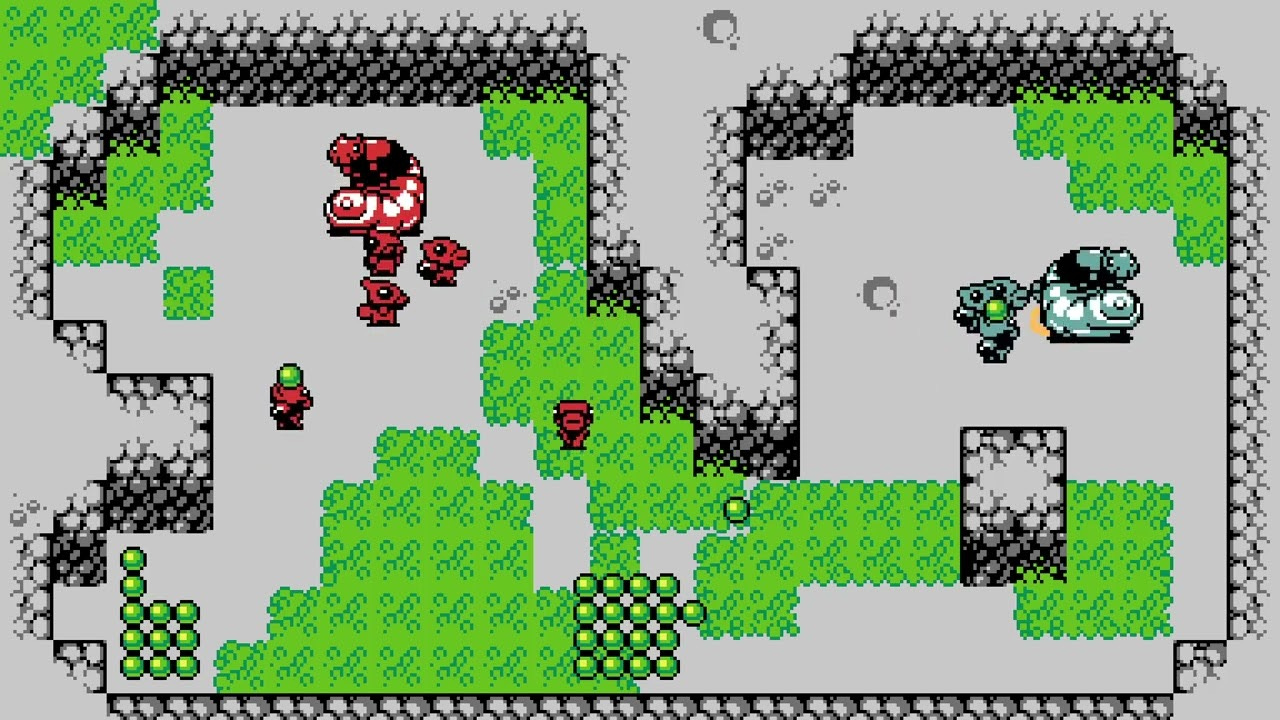
There's A Lotta Good Stuff In Here
The 50 (!!!) games are hugely varied. Just about every genre is represented: Arcade. Strategy. Board. Tower Defense. Puzzle. Adventure. Deck-Building. A Zelda-like RPG, except it's golf. Even an idle game.
I'm not going to list what games I liked or didn't like. Your tastes will be different. I found an article that reviewed all the games, and I think it's an excellent overview. Two games that everyone was impressed by (including me) are Party House (a delightful deck-builder) and Mortol (a puzzle platformer where you advance by killing your guys).
What I will say is that all of these games have something that makes it feel fresh. I tried all of them for a while, and EVERY one of the 50 games had a twist or design element that made me think, "Huh. That's interesting!" This collection is absolutely loaded with clever ideas.
I think, no matter what your taste, you'll find 10 games in here that totally justifies the price. UFO50 is a bargain.
While it would be fun to pick apart the individual titles, I'm far more interested in what UFO50 can teach about the art and business of video games.
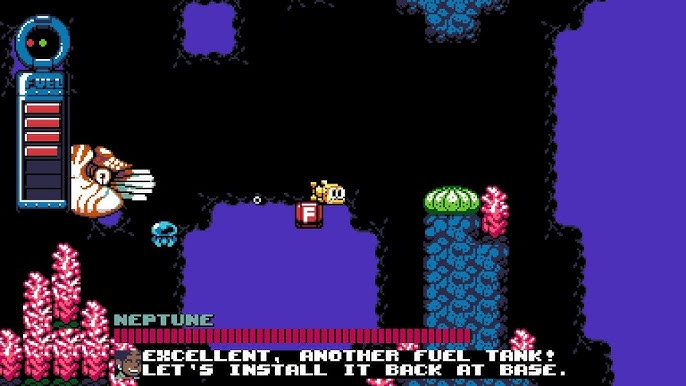
Ideas Are Cheap
I'm kind of dubious about classes that claim to teach game design. But if you are teaching one, you should use this collection as a textbook.
UFO50 contains both introductions to a multitude of game genres and constant examples of how an old genre can be refreshed with a simple idea. But, because it contains so, so many clever ideas, it is great for showing how much a clever idea ISN'T worth.
It's been said a billion times: Ideas are cheap. Everyone has ideas. It's the implementation that matters. And to put the final nail in this coffin is one title with a whole career's worth of ideas in one messy pile.
I have gone to many industry shows, and I've tried out countless games by young, perky, energetic developers. Each game had its one good idea. The developers had this idea and wrote a game around it. They paid for a table at this convention or that to show it off. Every great once in a while, this game would ship and make money. Almost always not.
A handful of good ideas isn't enough anymore. In 2013, a bunch of totally mid indie games with one clever idea came out and made bank, but we will not live to see those days again. (Yes, I wrote some of those mid indie games.)
We just had another Steam Next Fest, which had around 3000 demos in it. (Skull emoji.) I watched streamers trying them, and more often than not I ended up thinking, "That's almost clever enough to be 1/50 of UFO50."
They weren't bad games. They were just somewhat above-average. If you're trying to run a business these days, "somewhat above-average" is death. I've always told developers, "You have to compete with free." Now I will add, "Is your game more fun than every game in UFO50?"
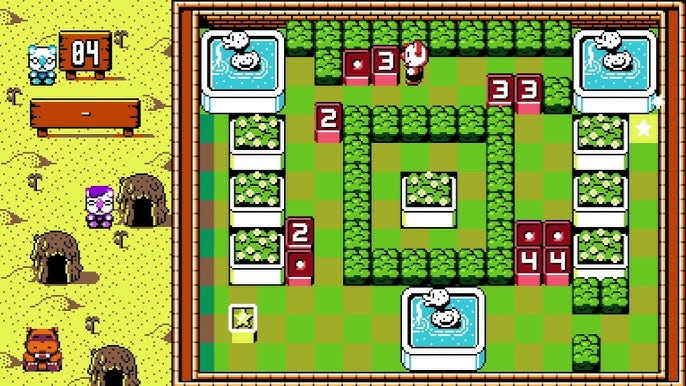
The Bliss Of Smaller Games
When I play UFO50, I channel surf from game to game. I look at the list, see what I'm in the mood for, and play it for 15 minutes. Then I move seamlessly to the next game I feel like. Then I see how many crystals I made in the idle game while playing the other games. This fun feeling of surfing is made possible by two things. 1. There is so much content. 2. All of the games are short, so you can make real progress in 15 minutes.
Almost all of the games in UFO50 can be beaten in 2-3 hours. More, if you're as bad at retro arcade games as I am. This makes a lots of sense. When there's 50 games, you don't want to be bogged down too much in any one of them.
This collection keeps showing how fully enjoyable and satisfying a 2-3 hour game can be. It turns out, this may be the perfect length for most sorts of games. (But not quite. One of the games takes 20+ hours. The RPG, of course. Maybe RPGs have been terrible all along.)
Making a short game also makes it far easier to come up with a clever design that can carry a whole title. UFO50 is utterly packed with designs that could not carry a 40 hours game but are perfect for 3 hours.
And yet, it feels like you can only be in business selling 2-3 hours games in packages like this. A lone short game will have to be really cheap. It's really difficult to make and market a game as it is. Putting all that effort into a short $5-10 game has a really poor return on investment. (My rule of thumb: Don’t charge more than $5/hour.)
Games need to be long to justifiably cost more than $10 or so. At least, that's what customers say, and they get the only vote. And it's still hard to have a short game that stands out in the market. So you have to make bundles of them, which takes forever and is really difficult, since you need to design several really good games, not just one. So ...
UFO50 is a glimpse into a beautiful impossible world. Lots of people only have time and energy for short games. I've seen how much I love nice, compact experiences with a satisfying conclusion in the length of a long movie.
A lovely dream, but I have to assume the market isn't providing short games for a reason. This list of 3 hour games that have been big hits is a very, very short one.
A Few Side Notes About The Games
One of my hobbies is collecting retro video games, and I’ve played pretty much everything in the period UFO50 claims to represent, 1984-1989. I have scavenged many a garage sale, buying cartridges fished out of attics, covered in cobwebs and full of dead bugs.
The game really reproduces one of the things collectors of old games experience: Finding the games but not their instructions. To play UFO50 you have to do a lot of trial and error to figure out how the game works. Honestly, a bit too much. If they did a better job of saying the rules (especially for the board games), it would enable players to experience more of the good stuff quickly.
One fascinating thing for me is that all of these games were technically doable on a Nintendo NES in the 1980s. (Except the idle game that keeps track of how long since you last played it, but whatever.)
UFO50 brags about having retro games with modern design, and it really does. When the NES was getting huge, a good designer could have invented the tower defense game or perfected the puzzle platformer.
Would we have even liked them? Would the developer gotten rich if they'd had that idea earlier? At a time when simple titles like Duck Hunt and Ice Climber were hit games, were players ready for something as cool and odd as Mortol? It's fun to wonder.
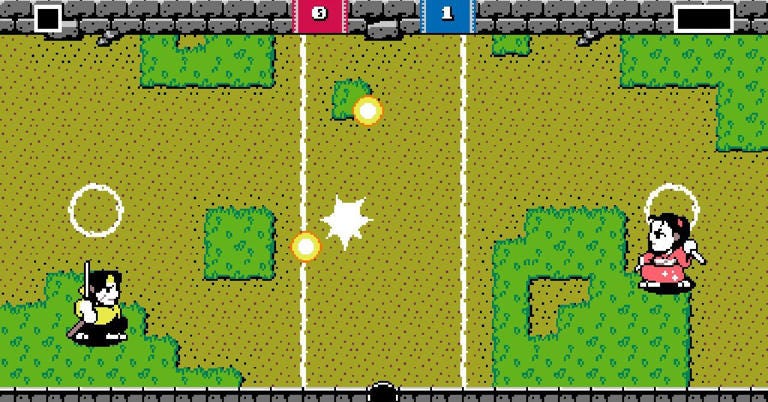
And How Will UFO50 Do In The Cold, Cruel Marketplace?
Indie developers have a way of guessing how many copies their competitors' titles are selling. They take the number of Steam reviews and multiply by 30 or 40 or so.
If this is at all accurate, UFO50 is doing OK. It's into 7 figures for sure. But then there's the Steam cut, and then you're splitting the money six ways for work done over seven years. (I'm sure they weren't working on it for that long continuously, but a ton of work went into these games.)
I bet the devs are doing ok, and I'm glad. But nobody is getting rich off of UFO50. No giant Los Angeles mansions will be bought. And it might have bombed. Good games sell bad all the time.
I don't like ending this on yet another tired "The game industry is cooked." message. However, when I say UFO50 should be a textbook for neophyte developers, it's not just because of the clever design or the history of game design. It because this is the level of the competition now.
If you want to make money selling your game, is it better than 1/50 of UFO50? Or 50/50?
Spiderweb Software creates turn-based, indie, old-school fantasy role-playing games. They are low-budget, but they’re full of good story and fun. You can still late-back the Kickstarter for our next game, Avernum 4: Greed and Glory.



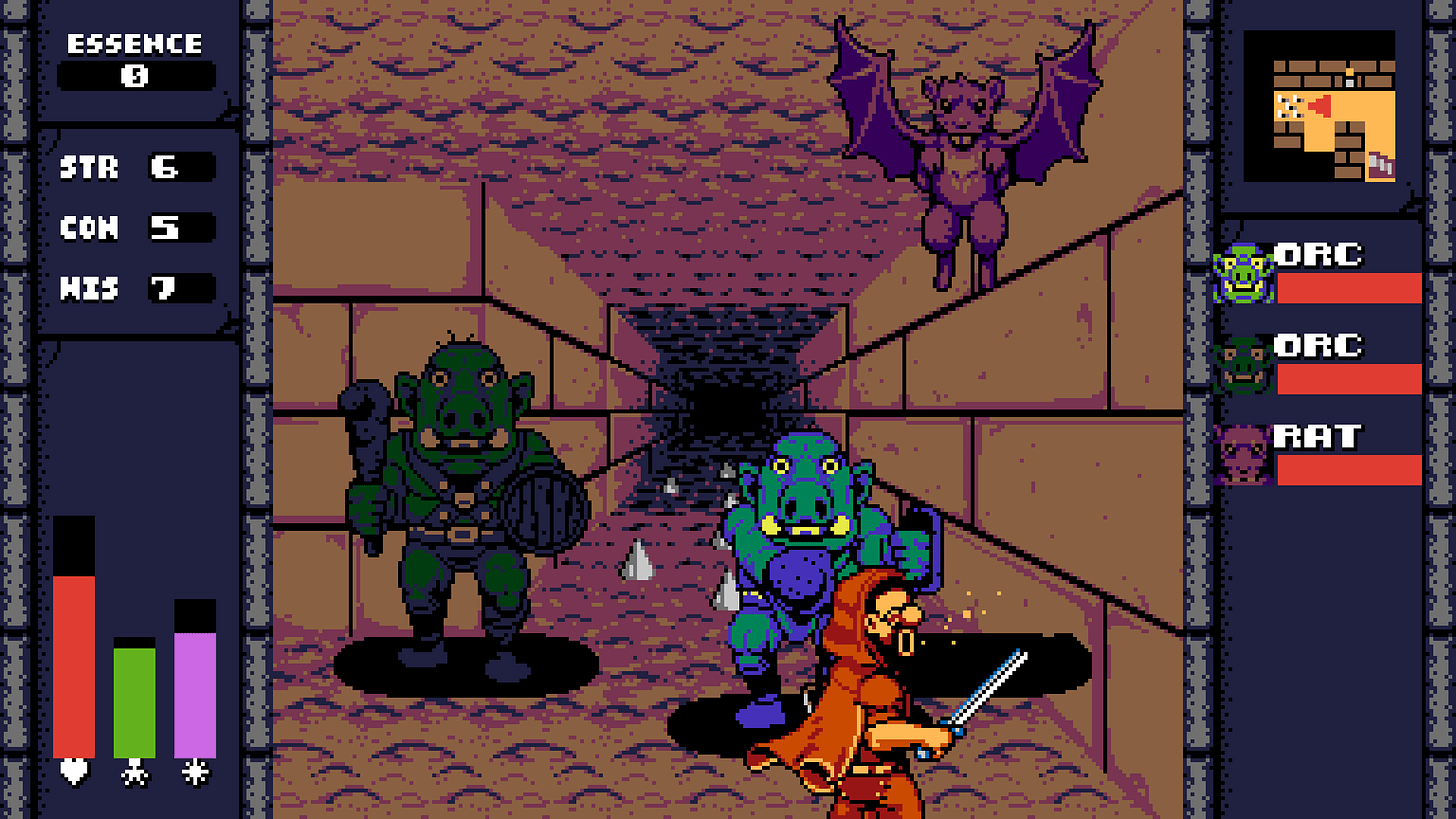
This has been done before, thrice in fact.
Look up the Japanese games Gamecenter CX ("Retro Game Challenge" in the West) for Nintendo DS.
Granted it's not 50 games (more like 10 or so) but same concept.
The other day I was playing Hearthstone and the Sword & Sorcery LP on my iPad and it hit me; games, as a bizz and as a cultural phenomenon, loose out so much on negating the artistic potential and merit it has. Right now, games are sort of measured like drugs as in ”how much happy-chems its reward/interaction system can generate. Very rarely what sort of emotions it may stir.
And this is the thing, if you want to compete for success in games you can do so through this reductionist, analytical approach. Like a scientist would, which makes sense since most folks in games are either entrepreneurs or engineers (architypal, as such). But alas, the soft artistic values and their potential are being totally squandered through this approach and left forgotten when considering an endevour into making games. If you creat something that is interactive, balanced in friction and offering an atmosphere and/or emotional stimuli that is unique to its experience, then the game (no pun intended) completely changes.
Just wanted to chip those 5 cents in as a positive note to the grim ”games are cooked” take that you are nurturing ;)